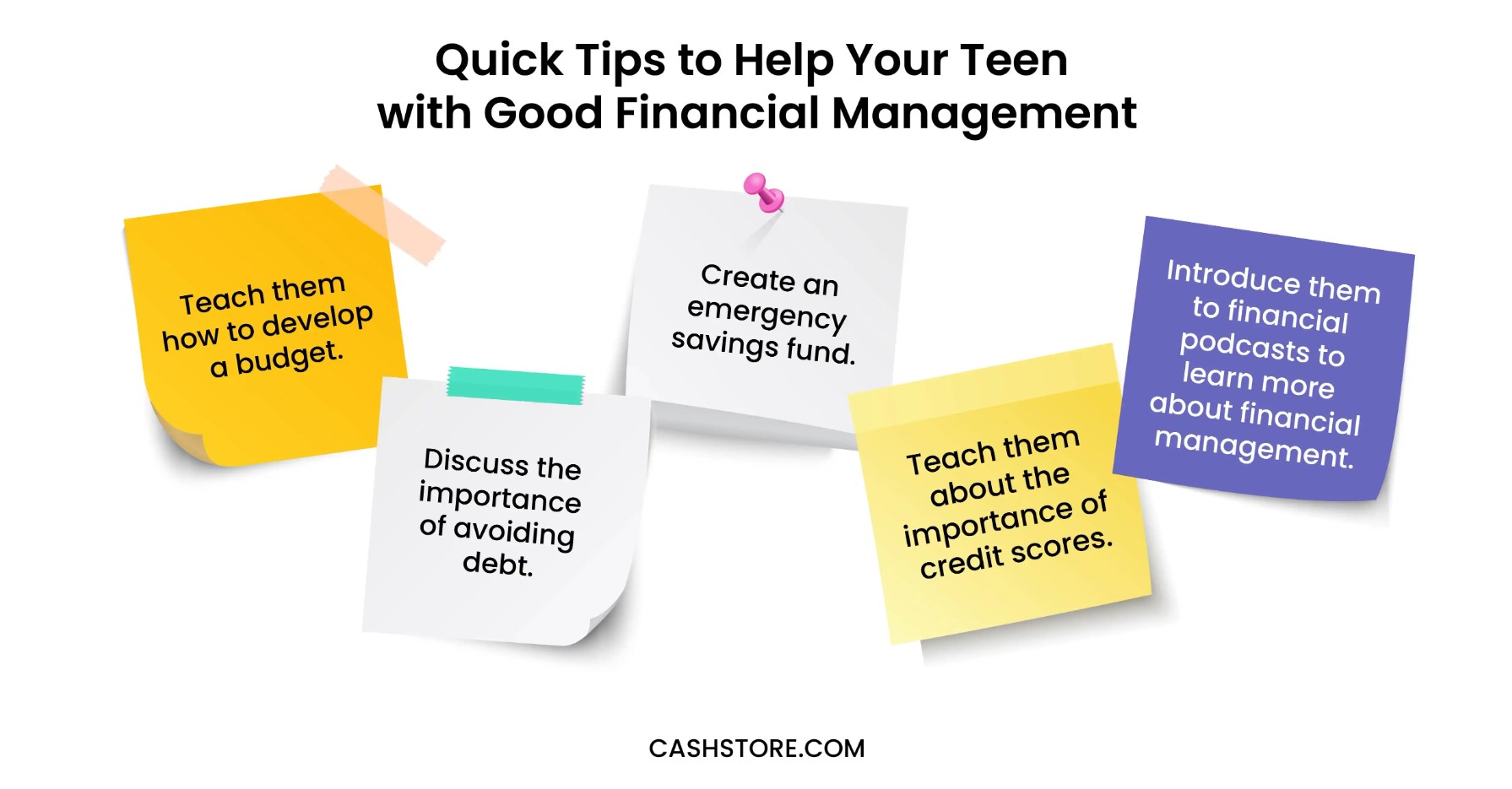Cash Store Blog
What is the Best Bank Account for Teens?
Financial management is not one of those things that just comes naturally. In most cases, it is something we need to teach our children, starting at a much younger age than many people realize. When our kids are little, we can teach them about saving money by getting them a piggy bank. And as they get into their school age years, we can teach them the value of money by providing them with tasks to complete around the house in exchange for some form of nominal financial compensation.
But what happens when kids get older, entering those teenage years? How do you help them to take their hard-earned paychecks and not spend it all in one fell swoop? Part of the answer falls in finding the best bank account for teens. In this article, the Cash Store team will tell you what you need to know.

Chase High School Checking
Chase Bank is known for its strong reputation in banking, offering reliable services and extensive access to financial tools. What sets Chase apart is its commitment to providing user-friendly banking options for all ages.
Key Features and Benefits:
- No Monthly Service Fee: For students aged 13-17, making it cost-effective.
- Chase Mobile and Online Banking: Easy access to account management anytime, anywhere.
- Parent or Guardian Co-Owner Required: Keeps parents involved.
Pros and Cons:
- Pros: Extensive ATM network provides easy access to cash. User-friendly mobile app simplifies banking tasks.
- Cons: Limited to students and requires a parent or guardian to be a joint account holder, which might not suit all families.
Capital One MONEY Teen Checking
Capital One stands out for its commitment to making banking simple and accessible. Their MONEY Teen Checking account is designed to help teens learn financial responsibility.
Key Features and Benefits:
- No Monthly Fees or Minimum Balance Requirements: Cost-effective for teens starting out.
- Free Debit Card: Plus access to over 70,000 ATMs, making withdrawals easy.
- Parental Monitoring and Control Features: Parents can keep an eye on spending and guide their teens.
Pros and Cons:
- Pros: Robust financial education tools help teens learn about money management. And the account comes with a debit card so teens can learn good financial behaviors when out shopping.
- Cons: Limited physical branches might be inconvenient for those who prefer in-person banking.
Wells Fargo Teen Checking
Wells Fargo is known for its extensive branch network and reliable services. Their Teen Checking account offers tools to help young people manage money effectively.
Key Features and Benefits:
- No Monthly Fees for Teens Aged 13-17: Making it affordable for young account holders.
- Online Banking and Mobile App Access: Provides easy account management and financial tracking.
- Financial Education Resources: Helps teens learn the basics of personal finance.
Pros and Cons:
- Pros: Extensive branch and ATM network help give teens the accessibility they need.
- Cons: Possible fees after the teen turns 18 may require parents to help their kids switch to a different account set-up.
Alliant Credit Union Teen Checking
Alliant Credit Union is known for its member-focused approach and competitive interest rates. Their Teen Checking account offers an attractive combination of benefits.
Key Features and Benefits:
- No Monthly Maintenance Fees or Minimum Balance Requirements: Making it budget-friendly.
- High-Interest Rate: Helps teens grow their savings faster compared to traditional banks.
- Parental Co-Owner Required: Prioritizes adult guidance and oversight.
Pros and Cons:
- Pros: High interest on balances encourages saving.
- Cons: Limited physical branch access might be a drawback for those who prefer in-person banking.

Quick Tips to Help Your Teen with Good Financial Management
Aside from helping your child find the best bank account for teens, there are other things you can do as parents to help set your child up for financial success. Here are just some of the things you can do to help grow their financial literacy so they will practice good financial habits once they leave the nest.
- Teach them how to develop a budget. We recommend the 50/20/30 budgeting plan, which creates great habits around separating needs and wants, and learning how to invest for the future.
- Create an emergency savings fund. A good way to start is to teach them the long-term value of saving just $5 per day.
- Introduce them to financial podcasts to learn more about financial management.
- Discuss the importance of avoiding debt.
- Teach them about credit scores and the importance of keeping that score as high as possible.
Cash Store Can Help With Short-Term Financial Needs
While building good financial habits is super important, it can take some time. And sometimes, we run into an emergency that creates a cash shortage. Instead of failing to pay a bill or not getting to work on time due to a car repair that you don’t have the money for, know that Cash Store can help with short-term loans.
To learn more, apply today by completing our pre-qualification application.


